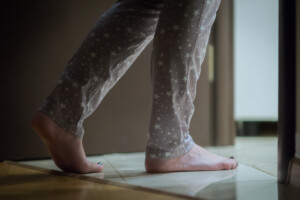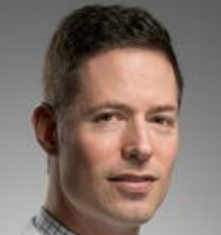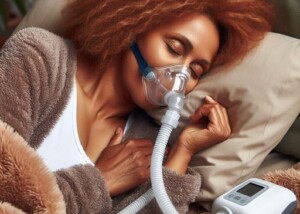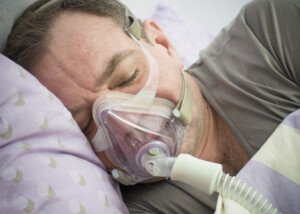
You’re now on CPAP for the sleep apnea that’s been causing endless overnight trips to the john, but doggone it, you still suffer from nocturia.
“The first thing to do is to make sure that the sleep apnea is being optimally treated,” says Joseph Krainin, MD, board certified in sleep medicine and neurology and founder of the online sleep apnea clinic Singular Sleep.
“A lot of patients just use their CPAPs and think the issue is solved,” continues Dr. Krainin.
“This is wrongheaded thinking. It would be like taking a blood pressure pill and assuming that your high blood pressure was fully treated. You have to regularly monitor to know.
“In this case, I would always recommend a machine download to look at measures of efficacy and possibly a pulse oximetry study on therapy. A repeat sleep apnea test might be indicated in certain cases.”
If you’re still suffering from nocturia despite compliant CPAP use, you’ll want to be examined for other possible causes of the repeated interruptions in sleep to urinate.
Nocturia Is Not…
- Merely feeling the urge to urinate, but then not much, if anything, trickles out.
- A sensation of a full bladder but there’s no voiding.
- Waking up in the middle of the night for an unknown reason, and then deciding, “While I’m up, might as well sit on the toilet.”
Nocturia is the actual need to void a good amount of urine, not just a trickle.
An enlarged prostate or a stiff bladder muscle will create the sensation of needing to urinate.
But true nocturia is when the kidneys fill the bladder more than once during sleep. They are not supposed to do this.
Untreated sleep apnea triggers this action, which is why nocturia is a highly suspicious symptom for untreated or inadequately treated sleep apnea.
Make sure your CPAP machine is working properly. For example, air leaks can result in less-than-optimal treatment. So can abandoning CPAP therapy in the middle of the night due to discomfort.
Keep working with tweaking your CPAP treatment to get the right adjustment and fit; CPAP therapy indeed should end nocturia caused by sleep apnea.
Finally…
“The obvious suggestion is refraining from drinking fluids for a few hours leading up to bed,” says Dr. Krainin.
 In 2013 Dr. Krainin was elected a Fellow of the American Academy of Sleep Medicine, an honor reserved for sleep doctors who’ve made significant contributions to the field in education, research and service.
In 2013 Dr. Krainin was elected a Fellow of the American Academy of Sleep Medicine, an honor reserved for sleep doctors who’ve made significant contributions to the field in education, research and service.
 Lorra Garrick has been covering medical, fitness and cybersecurity topics for many years, having written thousands of articles for print magazines and websites, including as a ghostwriter. She’s also a former ACE-certified personal trainer.
Lorra Garrick has been covering medical, fitness and cybersecurity topics for many years, having written thousands of articles for print magazines and websites, including as a ghostwriter. She’s also a former ACE-certified personal trainer.
.









































